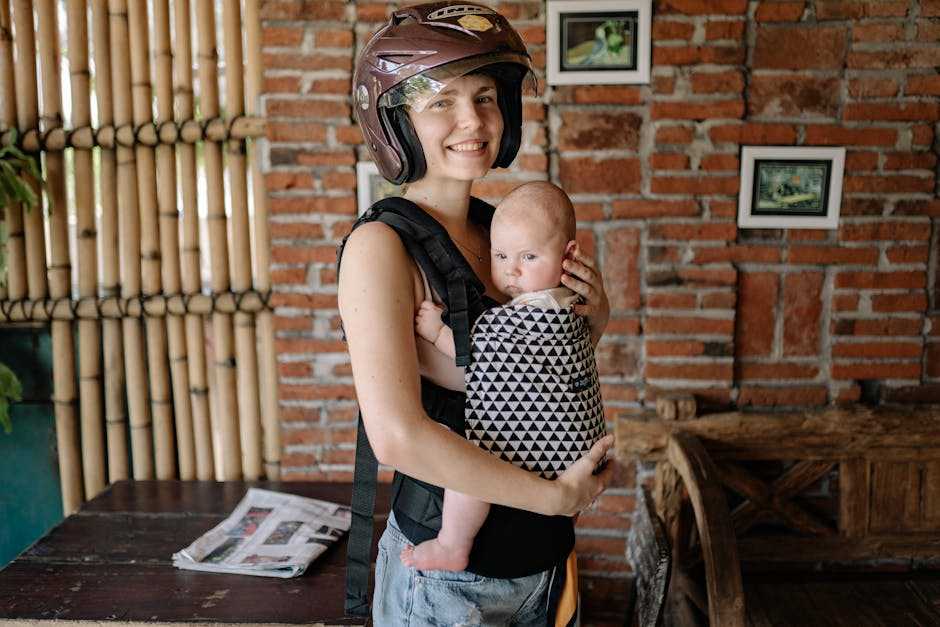Traveling sustainably with your family is not just a trend; it’s a conscious choice that can make a real difference. As a parent and an avid traveler, I understand the importance of exploring the world while minimizing our environmental impact. In this article, I’ll share practical tips and strategies to help you and your loved ones enjoy eco-friendly adventures without compromising on the fun and excitement of travel.
From choosing eco-friendly accommodations to packing light and reducing single-use plastics, there are numerous ways to make your family trips more sustainable. As I delve into the details, you’ll discover how simple changes in your travel habits can contribute to preserving the planet for future generations. Join me on this journey towards responsible and mindful travel practices that not only benefit the environment but also create lasting memories for your family.
Benefits of Sustainable Travel with Family
Exploring the Benefits of Sustainable Travel with Family, I’ve come to realize the positive impact it has on both the environment and our family dynamics. Here are some compelling reasons why this conscious choice is worth making:
1. Environmental Preservation
Traveling sustainably reduces carbon footprint, protects natural habitats, and helps in the conservation of wildlife. By opting for eco-friendly transportation and accommodations, we contribute to the preservation of the environment for future generations.
2. Educational Opportunities
Sustainable travel offers unique learning opportunities for children as they engage with different cultures, local communities, and ecosystems. It provides hands-on education about environmental conservation and biodiversity, fostering a deeper understanding and appreciation for the world around them.
3. Quality Family Time
Choosing sustainable travel allows families to bond over meaningful experiences and create lasting memories. Whether exploring a local farm, hiking in a national park, or participating in a beach clean-up, these shared activities strengthen family bonds and promote communication among family members.
4. Promoting Responsible Tourism
By practicing sustainable travel habits, we set a positive example for our children and promote responsible tourism behavior. Encouraging respect for local customs, supporting small businesses, and minimizing waste during travel cultivates a sense of global citizenship and respect for diverse cultures.
5. Personal Growth
Sustainable travel challenges us to step out of our comfort zones, adapt to new situations, and develop resilience. It fosters a sense of empathy, tolerance, and open-mindedness as we navigate unfamiliar environments and engage with people from different backgrounds, promoting personal growth and development.
6. Community Support
Choosing sustainable travel options often means supporting local communities and small businesses. By patronizing eco-friendly hotels, local tour operators, and ethical souvenirs, we contribute directly to the livelihoods of community members, helping to build a more sustainable and equitable society.
Embracing sustainable travel with family not only benefits the environment but also enriches our travel experiences, strengthens family bonds, and instills valuable life lessons in our children. By making conscious choices during our travels, we pave the way for a more sustainable and responsible approach to exploring the world.
Planning Your Sustainable Family Travel
When considering sustainable family travel, I always start by planning meticulously to ensure every aspect aligns with eco-friendly practices. It’s essential to make conscious choices that benefit both the environment and our family dynamics.
Choosing Eco-Friendly Accommodations
In my experience, opting for eco-friendly accommodations such as ecolodges, green hotels, or vacation rentals certified for their sustainability practices can significantly reduce the environmental impact of our stay. These establishments often implement energy-saving measures, waste reduction programs, and use locally sourced materials.
Researching Green Transportation Options
In my travels, I prioritize researching green transportation options like public transit, trains, or electric vehicles to minimize our carbon footprint. These modes of transport not only reduce emissions but also provide a unique travel experience while supporting sustainable initiatives within the destination.
Engaging Kids in Sustainable Practices
Introducing children to sustainable practices while traveling is a rewarding way to educate them about environmental responsibility and instill lifelong values. Kids are naturally curious and eager to learn, making it easier to engage them in sustainable activities during family trips. Here are some effective ways to involve kids in practicing sustainability while traveling:
- Educational Activities: I love organizing fun and educational activities for my kids that raise awareness about the environment. Visiting nature reserves, wildlife sanctuaries, or participating in beach clean-ups are excellent ways to show children firsthand the importance of preserving our planet.
- Interactive Learning: Engaging kids in interactive learning experiences can make sustainability concepts more relatable. I find that activities like planting trees, composting food scraps, or learning about local wildlife help children connect with the environment in a meaningful way.
- Involvement in Decision Making: Encouraging children to be part of decision-making processes regarding sustainable choices can empower them to take ownership of their actions. I involve my kids in selecting eco-friendly accommodations, choosing to walk or bike instead of driving, or supporting local artisans to promote sustainable tourism.
- Setting Examples: Children often mimic the behaviors they observe, so setting a positive example is crucial. I make conscious efforts to reduce plastic waste, conserve water and energy, and respect nature during our travels. These actions not only benefit the environment but also teach kids the significance of sustainable practices.
- Creating Memories: Making sustainability a core part of family travel creates lasting memories and bonds. Whether it’s exploring a sustainable farm, participating in a cultural exchange with indigenous communities, or sharing stories of conservation efforts, these experiences leave a positive impact on children and shape their perspectives on sustainability.
Engaging kids in sustainable practices during family travel not only benefits the environment but also nurtures a sense of responsibility and stewardship in children. By involving them in meaningful activities and leading by example, we can inspire the next generation to be mindful global citizens committed to preserving our planet.
Budget-Friendly Tips for Sustainable Family Travel
When considering sustainable family travel, budget-friendly tips can make a significant impact. I’ll share practical strategies that not only help the environment but also save money along the way.
- Pack Reusable Items: Bringing reusable water bottles, shopping bags, and food containers can reduce waste and cut down on expenses incurred from buying single-use items.
- Choose Accommodations Wisely: Opt for eco-friendly stays like campsites, hostels, or lodges that prioritize sustainability. These options often offer affordable rates and provide a more authentic experience for your family.
- Eat Local and Seasonal Foods: Enjoying local cuisine not only supports small businesses but also decreases the carbon footprint associated with importing food. Seasonal foods tend to be fresher and less expensive, contributing to both sustainability and savings.
- Use Public Transportation: Utilize public transportation whenever possible to minimize emissions and save on transportation costs. Many cities offer budget-friendly options like buses, subways, or trains that are eco-friendly alternatives to driving.
- Plan Outdoor Activities: Engage in outdoor activities like hiking, biking, or exploring nature reserves, which are usually low-cost or free. Not only are these activities sustainable, but they also provide opportunities for memorable family bonding experiences.
- Research Free Attractions: Look for free or donation-based attractions at your destination. Museums, parks, and cultural sites often have days with no entry fees, allowing your family to enjoy enriching experiences without breaking the bank.
By incorporating these budget-friendly tips into your sustainable family travel plans, you’ll not only minimize your environmental impact but also create lasting memories without overspending.






